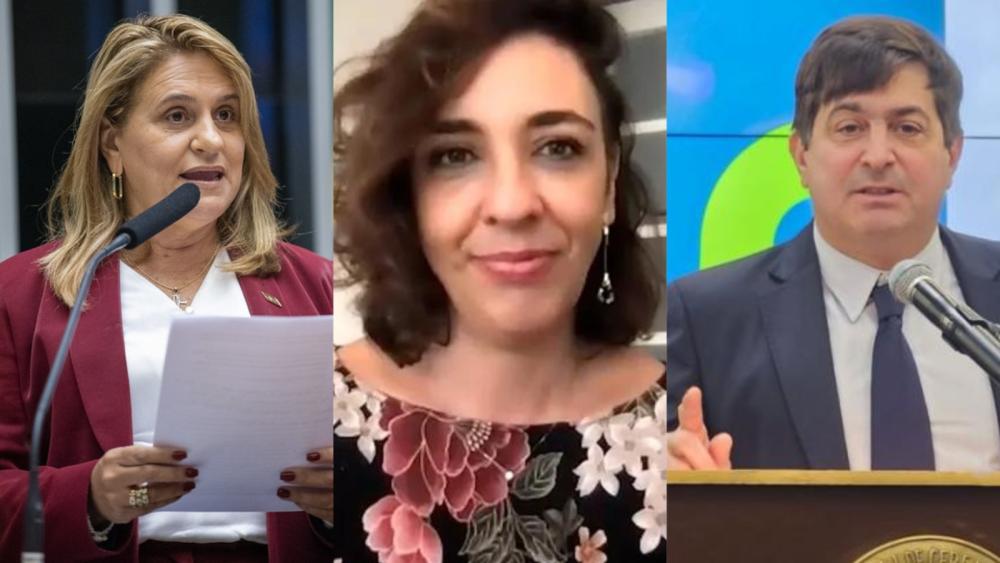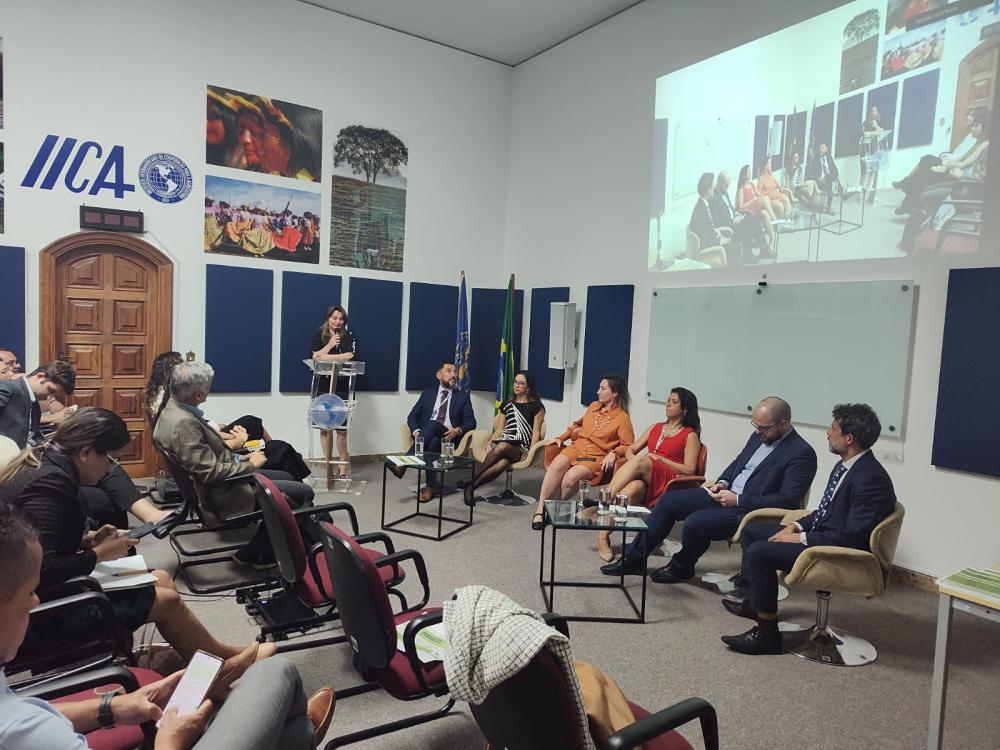The bioeconomy is a vital tool for the conservation of the Amazon and the social inclusion of communities, indicates a study presented at the IICA Delegation in Brazil

Brasilia, 14 May 2024 (IICA) - The bioeconomy has great potential to contribute to the conservation of the Amazon, the largest tropical forest in the world, with social inclusion and facing the climate crisis, showed a scientific study presented in Brazil as part of a panel with the participation of high-level authorities from the Brazilian Agricultural Research Corporation (EMBRAPA), the Environmental Research Institute of the Amazon (IPAM) and the Inter-American Institute for Cooperation on Agriculture (IICA).
“The Bioeconomy and Amazonian sociobiodiversity: A potential axis for the integration of countries of the Panamazonia” is the title of the document, produced by IPAM, a partner organization of IICA that has been working for almost 30 years to promote sustainable and inclusive development in the largest tropical forest in the world, a key piece in the global fight against climate change.
The meeting was held at the IICA Delegation in Brazil, and brought together representatives from the public and private sectors in the agricultural and environmental fields in the capital of this country.
The president of the Brazilian Agricultural Research Corporation (EMBRAPA), Silvia Massruhá, participated in the opening panel, together with the Deputy Director of the Amazon Environmental Research Institute (IPAM), Patrícia Pinho, and the IICA Representative in Brazil, Gabriel Delgado.
Then a debate was held among specialists about the opportunities and challenges that the bioeconomy presents for the sustainable development of the Amazon region.
The exchange of experiences took place between Hugo Chavarría, Manager of IICA’s Innovation and Bioeconomy Program; Edith Paredes, Administrative Director of the Amazon Cooperation Treaty Organization (ACTO); Ana Castro Euler, Business Director of EMBRAPA; Carina Mendonça Pimenta, National Secretary of Bioeconomy of the Ministry of Environment and Climate Change of Brazil; Luz Marina Almeida, of the Executive Committee of the State Bioeconomy Plan of the Government of the State of Pará; and André Aquino, Director of Forestry Development (DFF) of the Brazilian Forest Service.
The head of EMBRAPA, a key public institution of excellence in the extraordinary growth of Brazilian agriculture, emphasized the relevance of the study not only for Brazil but for the rest of the South American countries that share the Amazon basin.
Massruhá pointed out that there are three pillars on which EMBRAPA's work in the Amazon is based: conservation of the ecosystem, promotion of the forest-based bioeconomy and restoration of degraded areas.
She stated that the most important concern is how the bioeconomy can help the sustainable development of communities in the face of the challenge posed by climate change. “We work not only to contribute to mitigation but also to adaptation, since the impact of climate change is increasingly present, as we are seeing today in a dramatic way with the devastation caused by floods in the state of Río Grande do Sul. We promote sustainable practices in the Amazon and we are very strongly committed to the bioeconomy”, he pointed out.

Bioeconomy adapted to the context
The details of the study were presented by Patricia Pinho and IPAM researcher Olivia Zerbini, who pointed out that it is necessary to establish a tropical bioeconomy adapted to the context of the Amazon, which addresses inequalities and elevated levels of poverty. Thus, the bioeconomy is a tool that can contribute to combating deforestation, strengthening the ancient practices of Amazonian communities, diversifying production methods and sharing the benefits more equitably.
“The Amazon –said Pinho– has 40% of its current forest surface in a state of degradation, which means that it cannot fulfill its valuable and historical contribution in terms of climate and water regulation. This reinforces the potential of the bioeconomy to contribute to the construction of a protected Amazon, in which indigenous peoples and traditional communities can protect their livelihoods in a scenario of climate crisis”.
“The bioeconomy can be the engine for a paradigm shift that promotes economic and social resilience. It is a window of opportunity for the region and for the people, who largely live in poverty”, she warned.
For his part, Gabriel Delgado referred to IICA's commitment to projects aimed at strengthening the bioeconomy in the Amazon, which he considered vital not only for the region but for the world, based on the importance of this ecosystem for the planet’s climate stability.
“We are aware –he said– of the importance of the commitments assumed by the countries that participated in the Amazon Summit in Belem do Pará in August 2023. The bioeconomy, because it is innovative, inclusive and sustainable, is a fundamental tool for the economic, productive and social transition that the climate emergency imposes, in a context in which the conservation of biodiversity is increasingly important for the global agenda”.
Finally, Hugo Chavarría discussed the work that IICA has been carrying out in supporting countries to generate conditions conducive to the further development of the bioeconomy and considered that, beyond the particular characteristics of the Amazon, there are lessons learned in the region that are useful.
“We work together with the countries –he stated– in capacity building and development of strategies, policies and investments for the bioeconomy and its value chains. We all have different definitions of the concept of bioeconomy, but the challenges we face are shared. That is why we have to work in alliance and synergy”.
More information:
Institutional Communication Division.
comunicacion.institucional@iica.int